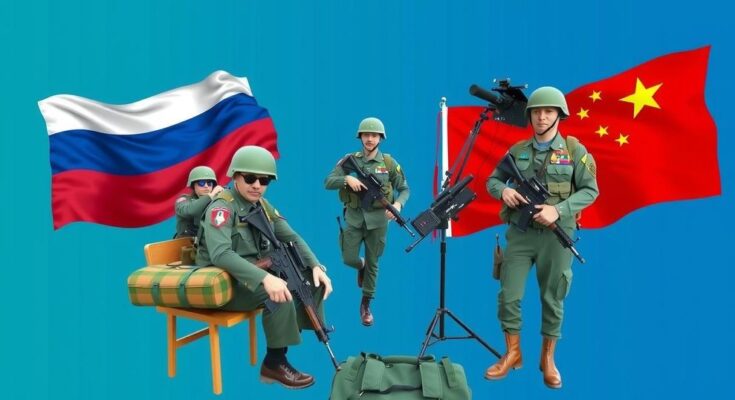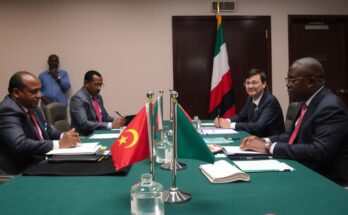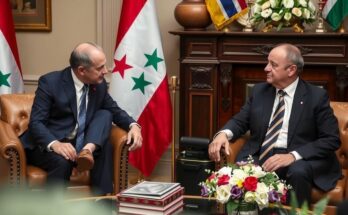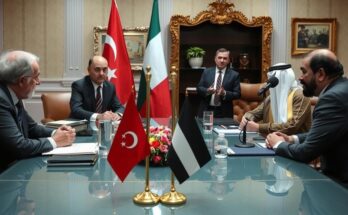Russia and China opposed a U.S.-led initiative to convert the Kenya-led force in Haiti to a U.N. peacekeeping mission amidst rising gang violence. They argue this transition is inappropriate given the lack of peace. Current troop deployments are severely under-resourced, presenting a significant challenge to restoring stability in Haiti.
On Wednesday, Russia and China expressed their disapproval of a U.S.-led initiative to convert the Kenya-led multinational force in Haiti into a U.N. peacekeeping mission. As violence escalates due to gang attacks, including assaults on aircraft, both nations convened a U.N. Security Council meeting to articulate their concerns about the proposal. With gangs reportedly controlling as much as 85% of Port-au-Prince, the call for a peacekeeping operation now appears premature, according to officials from both Russia and China.
The U.S. had initially proposed this transition in early September, hoping to stabilize funding for the force, which is currently facing a financial shortfall. However, efforts to secure approval from the Security Council have met resistance. Both Russia and China argue that discussing the transformation is counterproductive and jeopardizes ongoing operations. China’s Deputy U.N. Ambassador, Geng Shuang, emphasized that peacekeeping forces should not be deployed in the absence of peace, stating, “Deploying a peacekeeping operation at this time is nothing more than putting peacekeepers into the front line of the battles with gangs.”
Currently, the multinational initiative, which aimed to include 2,500 international police, has only successfully deployed around 430 personnel. The head of the U.N. political mission in Haiti highlighted the financial crisis facing the force, with critical resources lacking to adequately equip the mission. Moscow’s Deputy U.N. Ambassador, Dmitry Polyansky, underscored that conditions in Haiti do not warrant a peacekeeping presence and called for immediate support for the current multinational initiative. He stated, “Conditions on the ground in Haiti are not appropriate for U.N. peacekeepers.”
In response to the crisis, some Haitian leaders have called for a U.N. peacekeeping operation. Kenya’s national security adviser echoed this sentiment, noting the need for urgent deployments to support security efforts within the nation. However, attempts to facilitate the transition have met with skepticism from Russia and China, reinforcing the complex dynamics surrounding international intervention in Haiti at this time.
The situation in Haiti has reached a critical point, with escalating gang violence severely affecting public safety and stability. A multinational force led by Kenya was deployed to assist local police in combating this tide of lawlessness. However, significant challenges remain regarding funding and the adequate deployment of personnel, leading to discussions about transforming this initiative into a U.N. peacekeeping operation. Russia and China have voiced their opposition to this change, citing concerns over the appropriateness of deploying peacekeepers without established peace in Haiti.
In summary, the proposal to transform the Kenya-led multinational force in Haiti into a U.N. peacekeeping mission faces significant opposition from Russia and China. These countries argue that the ongoing violence renders such a transition impractical and potentially hazardous for peacekeepers. The urgent need for external resources and local stability has led to complex negotiations among international stakeholders, highlighting the urgent and multifaceted nature of Haiti’s crisis.
Original Source: www.durangoherald.com




